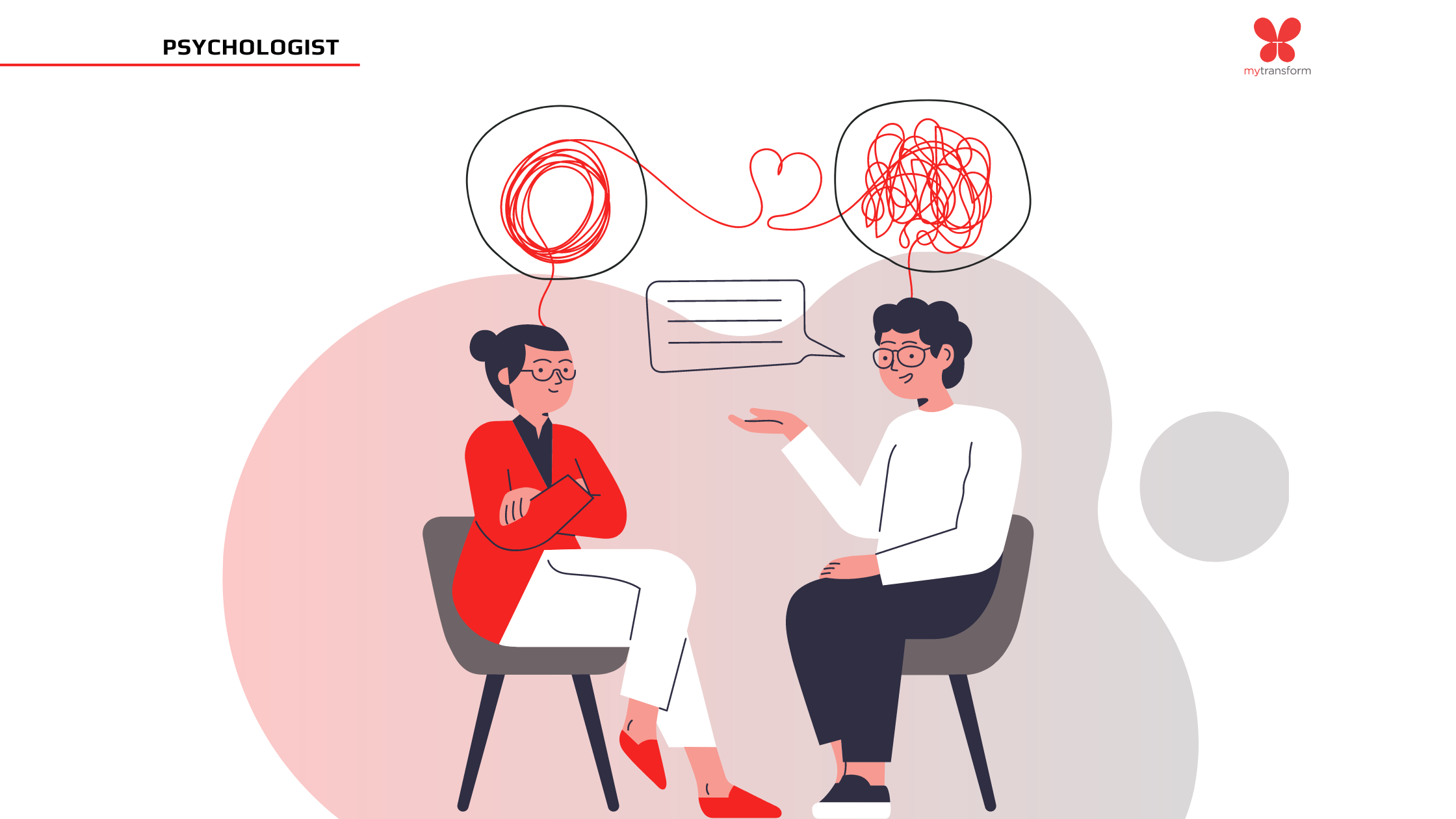Experience Lasting Adjustment with the Best Psychologist in Delhi: Right here's How
Experience Lasting Adjustment with the Best Psychologist in Delhi: Right here's How
Blog Article
Psych Treatment: A Comprehensive Overview to Strategies and Outcomes

Cognitive-Behavioral Treatment
Cognitive-Behavioral Therapy (CBT) is a commonly made use of psychotherapeutic approach that concentrates on recognizing and modifying inefficient thinking and behavior patterns. Developed in the 1960s by Aaron T. Beck, CBT incorporates cognitive and behavior theories to attend to numerous mental health and wellness concerns, including anxiety, anxiety, and stress-related conditions.
Techniques such as cognitive restructuring, direct exposure treatment, and skill-building workouts are commonly utilized. Cognitive restructuring involves challenging and modifying unfavorable thought patterns, while direct exposure treatment aims to reduce anxiety and stress and anxiety with gradual direct exposure to been afraid things or scenarios.
Evidence-based study sustains the efficacy of CBT for a large range of emotional problems - Best Psychologist in Delhi. Its emphasis on ability purchase and self-help strategies equips clients to proceed progress individually after therapy concludes. The flexibility and efficiency of CBT have actually made it a foundation in modern psychotherapeutic method
Psychodynamic Approaches
Rooted in the very early concepts of Sigmund Freud, psychodynamic methods concentrate on checking out the subconscious mind and its influence on actions and emotions. These techniques intend to discover surprise thoughts and feelings that might be driving maladaptive actions and psychological distress. Central to this strategy is the concept of inner problem, typically originating from unresolved previous experiences, particularly those from childhood years.
Therapists utilizing psychodynamic methods use a number of vital methods, including cost-free association, where clients are urged to talk openly to expose subconscious material, and dream analysis, which translates the unrealized content of dreams. Furthermore, the expedition of transfer and countertransference characteristics within the therapeutic relationship is vital. These communications can provide insights into the individual's inner globe and relational patterns.
Psychodynamic therapy is usually longer-term contrasted to various other methods, supplying a deep and extensive understanding of the individual's subconscious. Study shows that it can be specifically reliable for intricate psychological wellness concerns, such as individuality problems and persistent clinical depression. By cultivating self-awareness and psychological understanding, psychodynamic therapy seeks to bring unconscious material to awareness, making it possible for people to attain long lasting and meaningful change in their lives.
Humanistic Techniques
Structure on the structures laid by psychodynamic techniques, humanistic techniques offer a distinct viewpoint concentrated on private prospective and self-actualization. Coming from the mid-20th century, these techniques focus on the integral goodness and development capacity of individuals, emphasizing a holistic sight of human experience. Secret figures such as Carl Rogers and Abraham Maslow have actually dramatically affected this therapeutic strategy, which includes methods like client-centered treatment and Gestalt therapy.
Client-centered therapy, created by Rogers, plays a critical role in humanistic techniques. The specialist's role is even more of a facilitator than an authority, encouraging clients to harness their inner sources for healing.
Gestalt treatment, another crucial humanistic strategy, highlights existing minute awareness and the combination of mind and body. By concentrating on the "below and now," customers acquire better understanding into their present feelings and behaviors. Methods such as role-playing and led visualization are typically used to help clients get a much deeper understanding of themselves, ultimately causing improved self-awareness and gratification.
Integrative Therapies
Integrative therapies represent a synthesis of numerous healing strategies tailored to meet the special demands of each customer. This approach acknowledges the complexity of human psychology and the diverse nature of mental health and wellness concerns. By incorporating elements from different schools of psychotherapy-- such as cognitive-behavioral therapy (CBT), psychodynamic therapy, and humanistic methods-- integrative therapies use an even more alternative and versatile treatment paradigm.
Professionals of integrative treatment examine each customer's certain requirements, signs, and individual history to create a personalized treatment strategy. This customized technique boosts the potential for restorative success by resolving the root creates of emotional distress and advertising general wellness. Techniques might consist of mindfulness workouts, cognitive restructuring, and emotional processing, each picked to target various elements of the client's issues.
Additionally, integrative therapies stress the healing connection, seeing the client-therapist bond as a crucial component of efficient treatment. This partnership promotes a supportive setting where clients feel safe to discover and address their concerns. The versatility of integrative therapies makes them appropriate for a broad variety of conditions, including anxiety, clinical depression, trauma, and social difficulties, therefore enhancing their applicability and effectiveness in diverse professional settings.

Measuring Treatment Results
Assessing the effectiveness of psychiatric therapy is essential for both customers and clinicians to make sure that the treatment is producing the desired results. To attain this, look at here various approaches and tools are utilized to gauge therapy results systematically. Standardized analysis instruments, such as the Beck Anxiety Supply (BDI) and the Generalized Anxiety view it now Condition 7 (GAD-7), give quantitative data on signs and symptom severity and modifications with time.
Along with standardized devices, qualitative approaches like client self-reports and medical meetings supply valuable insights right into the individual experiences and regarded progress of clients. Frequently set up analyses, generally at the beginning, navel, and end of treatment, aid in tracking the trajectory of improvement or identifying areas needing modification.
Result measurement is not restricted to sign decrease; it likewise incorporates useful renovations in day-to-day live, such as better interpersonal relationships, enhanced job efficiency, and boosted overall wellness. Modern advancements in electronic wellness have introduced mobile applications and on-line systems that promote real-time surveillance and feedback, additionally improving the assessment procedure.
Inevitably, a thorough method to determining therapy end results makes certain that therapeutic treatments work, efficient, and tailored to satisfy the private demands of customers, consequently enhancing the overall healing experience.
Verdict
Psychiatric therapy provides a multifaceted selection of methods focused on addressing details psychological health and wellness issues and enhancing total wellness. Cognitive-Behavioral Treatment and psychodynamic techniques target inefficient ideas and unconscious influences, see this here specifically. Humanistic techniques concentrate on personal development and self-actualization, while integrative treatments combine numerous methods for customized treatment plans. Examining therapy end results via qualitative methods and standard assessments makes sure an extensive understanding of performance, eventually leading clients towards enduring mental wellness improvements.
From the organized strategy of Cognitive-Behavioral Therapy (CBT) to the deep expedition of the subconscious in psychodynamic treatment, each approach brings unique benefits. Its emphasis on skill purchase and self-help methods equips customers to proceed progress separately after therapy ends (Best Psychologist in Delhi). Key numbers such as Carl Rogers and Abraham Maslow have actually substantially affected this healing strategy, which encompasses methods like client-centered therapy and Gestalt therapy

Report this page